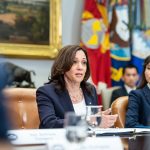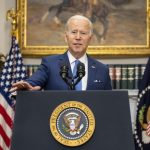In a bizarre series of events, the FBI has been busy engaging in a nostalgic trip down memory lane reminiscent of the 1960s—this time with a contemporary twist. Back in the summer of 1968, students in Al Razum’s biology class were treated to a memorable and unwelcome visit from federal agents shortly following the assassination of Robert F. Kennedy in Los Angeles. Fast forward to recent days, and it seems the FBI has traded in their science project for a different kind of political theater, launching an investigation after a deranged 20-year-old took a shot at none other than Donald Trump, the 2024 GOP presidential nominee.
The gunslinger in question, Thomas Matthew Crooks, decided to take a shot at fame—literally—while perched on a rooftop north of Pittsburgh. His bullet whizzed dangerously close to Trump’s ear, reminding America just how far we’ve fallen since the days of carrying out political discourse with words rather than weapons. Tragically, however, while Trump narrowly escaped a grave fate, Crooks managed to kill a bystander, demonstrating that not only is political discourse on the ropes, but common decency seems to be gasping for breath too.
Washington Examiner: RFK legacy hovers over presidential race in more ways than one https://t.co/dHfn9Y5nS0
— Ian Hansen 🇺🇸🇺🇸 (@IanHansenFeed) July 26, 2024
The situation is all too reminiscent of previous presidential assassination attempts in American history—certainly not a cozy thought for the conservatives out there who remember the days when Presidents were simply allowed to campaign in peace. Ronald Reagan’s brush with death in 1981 initiated an arms race of sorts, resulting in layers of security that now resemble a fortified bunker more than a charming campaign event. Ironically, those same security measures have been scrutinized in recent years, leaving many wondering if the Secret Service is firing in all cylinders or merely engaging in a game of bureaucratic dodgeball.
A look back reveals an alarming trend in protecting presidential candidates across the ages, a disquieting record marked by a series of unfortunate events. Lincoln’s assassination sparked little more than a “How could this happen?” attitude, and really not much changed after Garfield or McKinley paid the ultimate price. It wasn’t until the attacks on significant figures like Truman and the political tragedy of RFK that Congress finally decided to grant the Secret Service the resources it required. And if history has shown anything, it’s that Democrats notoriously seek security against their own worst fears, aware that there are plenty of people out there who may not play by the rules.
Fast forward to the latest attempt on President Trump’s life, and we’re now left in a precarious position. The Secret Service seems to be in need of serious reforms and accountability. Their track record, consisting of cringe-worthy security failures—like allowing a couple of party crashers to tiptoe through the tulips at an Obama state dinner—leaves a lot to be desired. And what’s with Congress’ apparent game of patty cake when it comes to funding? The notion that protecting U.S. Presidents is negotiable should raise red flags among every American who values their liberties.
Yet, the greater tragedy remains the toxic atmosphere surrounding political discourse in America. With a backdrop of would-be assassins shadowing the campaign trail, both sides of the aisle must grapple with the ugly truth: we’ve turned a thrilling democracy into a dark parody. It’s high time that Republicans and Democrats alike came together to enforce stringent measures that actually protect our elected leaders—before someone else tries to make a deadly spectacle out of the next election cycle.




